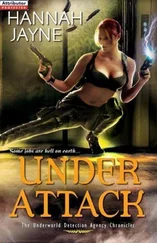When the alert sounded the more active ones saw to it that the shutters were securely bolted, the bath, hand basins and sinks filled with water in case of fire, candles brought out lest the electricity supply should fail, fires extinguished. The assembly point for the whole household was the large ground-floor living room. Miss Mack, an elderly, socially superior person who normally kept herself to herself in her first floor bedsitter, would make one of her rare appearances amongst us. She would come downstairs draped in her fur coat and carrying her jewel case. Tenderly she would be manoeuvred into a recumbent position on a mattress under the large dining-room table; for the period of the alert she would lie there, her furs wrapped around her, her jewels clasped to her bosom. The Dublin couple, from whose mealtime conversation one deduced a background of tweedy opulence, would appear carrying two large suitcases colourfully decorated with the stick-on labels of famous shipping lines and faraway hotels. Having chosen their resting-place, they would inflate their two airbeds, settle down on them and with apparent indifference to the sound and fury outside, while away the time scrutinising the pages of out-of-date copies of the Illustrated London News and the Field.
Coffee would be made. Those not lying down or on a fire-watching tour of inspection of the top floor, sat or stood around the empty fireplace. In the tense atmosphere, with so diverse a company, conversation tended to be intermittent and trivial … From the darkness beneath the large mahogany table an observation about the brutality of the Germans or the splendid behaviour of the British Royal Family would remind us that Miss Mack was still there.
Phyllis Warner considered that ‘We are lucky in having our own shelter [in Mary Ward House in Queen’s Square, Holborn, in what would be among the worst-bombed boroughs in London] so that we can have mattresses and even a table or chair or two down there, but even so, with the bare girders and rough planks of its reinforcing, it resembles the worst kind of steerage.’
Those who were supplied with Anderson shelters did not, or could not, always dig them in properly, or failed to cover them with the requisite amount of sand and earth – which was what really gave protection – or to bank up a mound of earth at the entrance to act as a ‘baffle wall’. Even those Andersons that were correctly sited were less than ideal. Many filled with water when it rained, and they were cold and cramped, while the noise of bombs and falling shrapnel echoed alarmingly around their tinny walls if they were not properly insulated with soil. The problem, as with all government shelter initiatives, was due to a category error. Air raids had been expected to be sharp and above all short: no one seems to have anticipated that many would last all night. The alert would commonly sound at about 8 p.m., and the All Clear was often not heard until five or six the next morning. So shelters that might have been perfectly acceptable for the half-hour or so that daytime raids often entailed were profoundly unsuitable for an entire night – night after night. The family tensions that must have been engendered by such close and fearful proximity, exacerbated by boredom and exhaustion, are almost too dreadful to dwell on.
On 19 September 1940 Picture Post wrote that ‘long winter nights are ahead [but] with a little ingenuity you can make them tolerable by fitting your Anderson shelter with home-made bunks’. It showed how Mr Stuart Murray of Croydon had ‘turned his shelter into a family bedroom’ by nailing a double layer of chicken wire across a wooden frame to provide two upper and two lower bunks, transforming the tin shelter into ‘if not a bed of roses, a tolerable resting place’. Other families made several treks each evening before the alert went off, carrying eiderdowns, rugs, deckchairs, pillows and cushions from the house to the shelter. The effect of all this, of course, was to make things even more cramped.
‘This going up to the shelter is not as simple as it sounds,’ wrote Sidney Chave, a lab technician who lived in Upper Norwood, south London. ‘It entails five or six journeys up and down carting the necessary articles, and finally our precious bundle [the Chaves’ daughter Jillian, who was just over a year old at the start of the blitz]. As the journeys are made along a wet garden path, in complete darkness accompanied by sporadic bursts of gun fire and with the planes droning overhead, and as one’s arms are full up with cushions, blankets and the like – it is not such a jolly affair, this Shelter life!’
Then there were the cold and the dark. A few enterprising handymen ran electric cables to their back-garden shelters so that a bar electric fire could be used, but this could be hazardous. Oil or paraffin heaters were not recommended, since they could start a fire if knocked over, as could a paraffin lamp, and torches were not the answer to the dark, since within weeks of the outbreak of war, batteries had become all but unobtainable. A candle in a flowerpot was suggested, but that carried a fire risk too, and the flickering light was hardly adequate for reading or knitting.
Herbert Brush, a seventy-one-year-old retired Electricity Board inspector, lived in Forest Hill, south London. Clearly something of a handyman, he had managed to fit up some rudimentary bunks in the family Anderson shelter, rig up an electric light for reading, and kept ‘half a dozen books on various subjects on a small shelf I have put up’. But it still wasn’t entirely satisfactory. ‘As usual we spent 12 hours in the shelter last night,’ he wrote on 31 October 1940. ‘We have got used to hard lying now and go to sleep as easily there as in bed, though I must own up to stiffness in the morning, when I am able to double up on my bed for an hour or so. I can’t double up much on two 11 inch boards; that with cushions makes my bed less than 2 feet in width. I can’t lie with my face to the wall because if I double up at all my posterior overhangs the bed and that is not a comfortable position: the other way round my knees sometimes overhang but that is not such an uncomfortable position.’
The ever-resourceful Mr Brush continued to try to make sleeping in a tin hut in the garden as acceptable as possible. By December, when it had grown bitterly cold at night, the family lit a paraffin heater in the shelter for an hour or so before the alert was expected, took hot-water bottles in with them, hung a curtain over the entrance and ‘fitted shields to keep the draughts off the bunks on either side of the dug out. It is quite a comfortable place now,’ Mr Brush conceded, ‘when one gets used to the cramped space and the inability to turn over without falling out, for folks of my size.’
Eighteen-year-old Margaret Turpin’s family had a brick-built shelter in the garden of their East End home. ‘It was so small. My brother was nearly six foot, there was my father, myself, my sister, my mother and a baby, and somehow we were all supposed to be able to sleep in this shelter. But it was impossible. It was only about seven feet long and a few feet wide. We had to sit up all night because there just wasn’t room to lie down. I suppose my mother thought my father ought to be the one that lay down [because he had to go to work] and my father thought my mother ought to because she had a little baby. And my brother was tall and had to fit in somehow, and that was the reason that eventually we went to a public shelter, because there was no way we could have slept through a prolonged blitz.’
Others, less in the eye of the storm than East Enders, tried to find somewhere they considered safe in the house, rather than spend the night in an uncomfortable garden shelter. And invariably people would leave their Andersons as soon as the All Clear went, usually in the early hours of the morning, to snatch at least a couple of hours in bed before they had to get up to start the day.
Читать дальше












